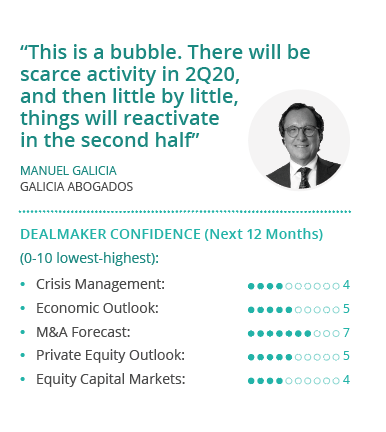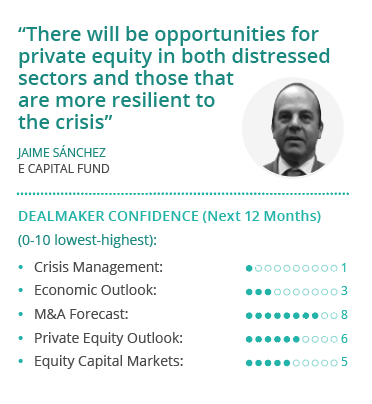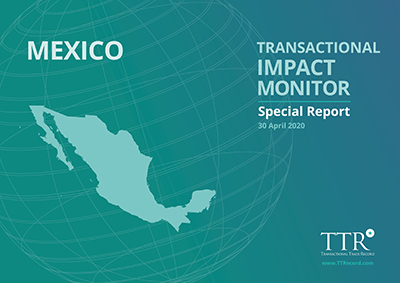Transactional Impact Monitor: Mexico
30 April 2020
TTR’s Transactional Impact Monitor (TIM) is a Special Report combining local knowledge and market visibility from top dealmakers developed to address extraordinary situations affecting the macroeconomic stability and M&A outlook in core markets
INDEX
– M&A Outlook
– Private Equity
– Equity Capital Markets
– Handling the Crisis
– Dealmaker Profiles

Mexico has taken a somewhat unique approach to combatting the “invisible enemy” of SARS-CoV-2. President Andrés Manuel López Obrador, popularly known as AMLO, actively downplayed the threat posed by the virus , before reluctantly declaring a public health emergency on Tuesday, 31 March. He then advised non-essential workers to stay home, two weeks after much of the world was already locked down.
“The government was trying to prevent an economic impact, especially on the informal economy, to avoid a social problem,” explained Galicia Abogados Founding Partner Manuel Galicia.

More recently, AMLO has used his updates to the nation to rail against government bailouts and predatory neoliberal lending practices that only benefit the rich. Mexico’s private sector, he has maintained, shouldn’t hold its breath for a rescue package.
“We will face the health crisis and the crisis of neoliberalism with a unique approach, one that will protect the majority, especially those in need, the poorest, that will serve everyone,” the president said in his address to the nation on 28 April.
Mexico’s private sector didn’t wait for a bailout. Those able to telecommute did so beginning in mid-March, though schools and restaurants remained open and many went about their daily business as usual until the beginning of April. “There was a situation in which the private sector was behaving one way, and the government another,” said Galicia. Testing was initially only offered in select government labs, before it was extended to private labs, a similar bottleneck faced in the US, noted Serficor IMAP Partner Gabriel Millán.

The Mexican authorities have since issued several decrees granting emergency powers and extended the 31 March quarantine through the end of May. On 23 April health officials announced plans to manufacture ventilators in Mexico in partnership with private entities acting in solidarity in anticipation of a peak in confirmed cases projected for mid-May.

“The government has been sending strange signals, leaving many perplexed,” said Millán. The slow and dismissive reaction of the president reduced compliance when the stay-at-home orders were finally issued, Millán said, and images of people filling the streets immediately thereafter demonstrated the poor compliance with to “social distancing”, or “sana distancia” as it’s been promoted in Mexico.
The launch of a super hero character, “Susana Distancia”, by Mexico’s Secretariat of Health didn’t reverse the relaxed attitude held by many, thanks in large part to AMLO’s insistence on greeting supporters with handshakes and hugs as the rest of the world “sheltered in place”, Millán said. “If that’s how people are behaving in Mexico City, the epicenter of contagion in the country, I can assure you that other parts of the country are heeding official health advisories even less.”
M&A Outlook
… Click here to access the first issue of Transactional Impact Monitor: Mexico

